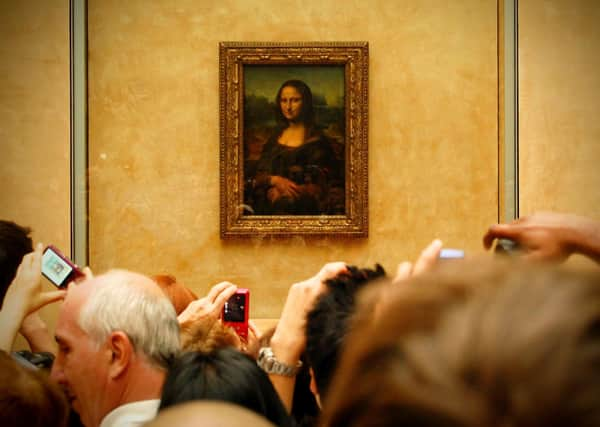Are NFT’s worth a punt, or is someone else getting rich quick?


But in the tech world, bandwagons are hard to avoid. People who know less than they think worry they will be left behind if they don’t throw their lot in with everyone else. And the rumoured fortunes earned by some early investors in these tokens – NFTs for short – has set off a veritable gold rush.
But what are NFTs? And now that they appear to be entering the mainstream, should you risk an investment?
Advertisement
Hide AdAdvertisement
Hide AdThe second question is easy: the answer is no. The first is a little more complex.
NFTs are distant relations to Bitcoin the so-called cryptocurrency conceived as an international means of payment and which is administered by other computer users, not by banks. NFTs use the same “blockchain” technology, recording information on banks of computers in a way that supposedly makes it difficult to cheat the system.
But whereas Bitcoin is a unit of currency that can be swapped for another of the same type and value, non-fungible items are unique assets such as paintings or antiques, which can be bought and sold with a value based on their age and condition.
The enigmatic smile of the Mona Lisa is as non-fungible as you can get; no matter how many times you copy it, there is only one original.
Advertisement
Hide AdAdvertisement
Hide AdBut digital artists paint in pixels, not oils. Their one-of-a-kind works have no physical form because they exist only on screen. Yet they can be bought and sold like any other piece of property, and NFTs exist to quantify that value and register it as yours. Your proof of ownership is a cryptographic “key” that can’t be replicated.
In principle, the system offers artists in the internet age the chance to make some money by selling ownership of their work to anyone who wants it. This doesn’t stop the image being copied and reused by someone else, but an NFT gives someone the honour of knowing they “own” the original.
Christie’s recently became the first major auction house to offer an exclusively digital work in this way, selling creations by an artist called Beeple – in reality 39-year-old Michael Winkelmann – for £50m worth of cryptocurrency. His ascendency to near Hockney status prompted every other artist with a PC and a graphics tablet to believe that they could also get rich quickly.
But like any investment, NFTs are wide open to opportunists and they are not always benign. The first problem is that estimating the worth of a piece of art which few have seen is arbitrary and subjective. Unless lots of other people are demonstrably prepared to pay the same price, there can be no consensus. Works by Leonardo da Vinci and probably David Hockney will remain highly prized for centuries to come, but the jury is still out on Winkelmann.
Advertisement
Hide AdAdvertisement
Hide AdFor that reason, critics of the system have said it amounts to nothing more than a scam, in which prices are inflated and the gullible fleeced.
“NFTs exist so that crypto-grifters can have a new kind of magic bean to sell for actual money, and pretend they’re not selling magic beans,” says David Gerard, author of Attack Of The 50-foot Blockchain. The purpose, he goes on, is to persuade people to invest real money in NFTs in order for the system to gain traction. As more people buy and sell them, the “commission” taken by those who administer the banks of computers rises exponentially, and someone ends up getting rich. But not you.
Support The Yorkshire Post and become a subscriber today. Your subscription will help us to continue to bring quality news to the people of Yorkshire. In return, you’ll see fewer ads on site, get free access to our app and receive exclusive members-only offers. Click here to subscribe.
Comment Guidelines
National World encourages reader discussion on our stories. User feedback, insights and back-and-forth exchanges add a rich layer of context to reporting. Please review our Community Guidelines before commenting.